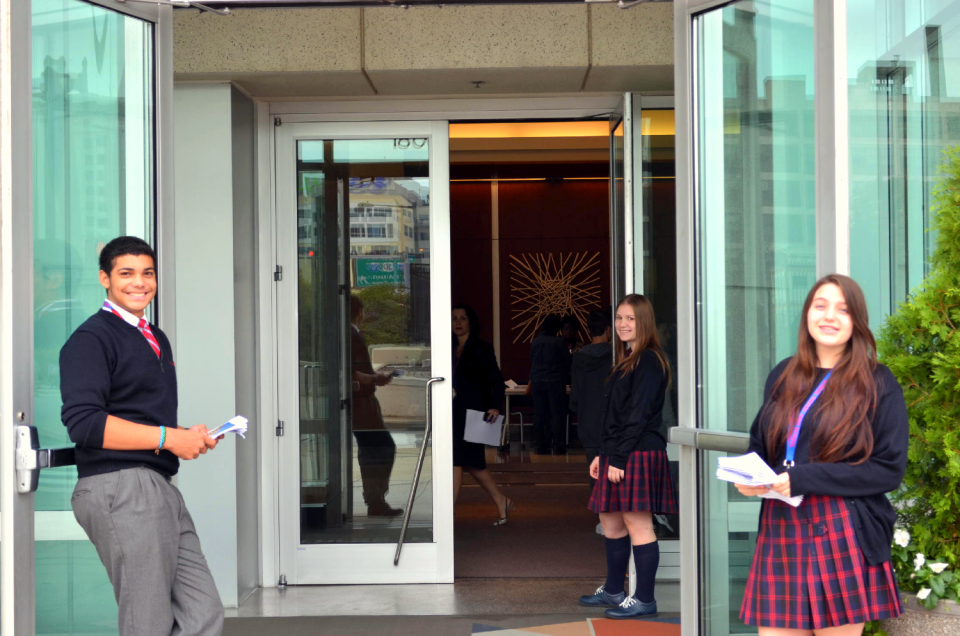
Mini-chicpea, my little baby, is about to turn 4. It is so crazy how time flies! We are at the point where we are looking into options for her future. We have so many questions! Public schools? Charter school? Private? I don’t even know where to begin.
A few months ago, I heard about String Theory Schools, who were looking for spaces in Jersey City. String Theory currently operates four schools in Philadelphia and when I looked into them, I thought they were too good to be true. I needed to find out more, and especially know how I could get my little one in there!
String Theory Schools’ education approach focuses on S.T.E.M and the arts. The curriculum is innovative and progressive, so much so that Apple recently featured them on their website. They prepare students for their future in the 21st century.
I invited Jason Corosanite, CEO of String Theory Education, to my office to give us the background and story behind String Theory Schools and their plans for Jersey City.
String Theory Schools will be coming to the Jersey City area on August 30th to host an information session. If you’re interested and want to know more about the schools, register now on stringtheoryjc.eventbrite.com!
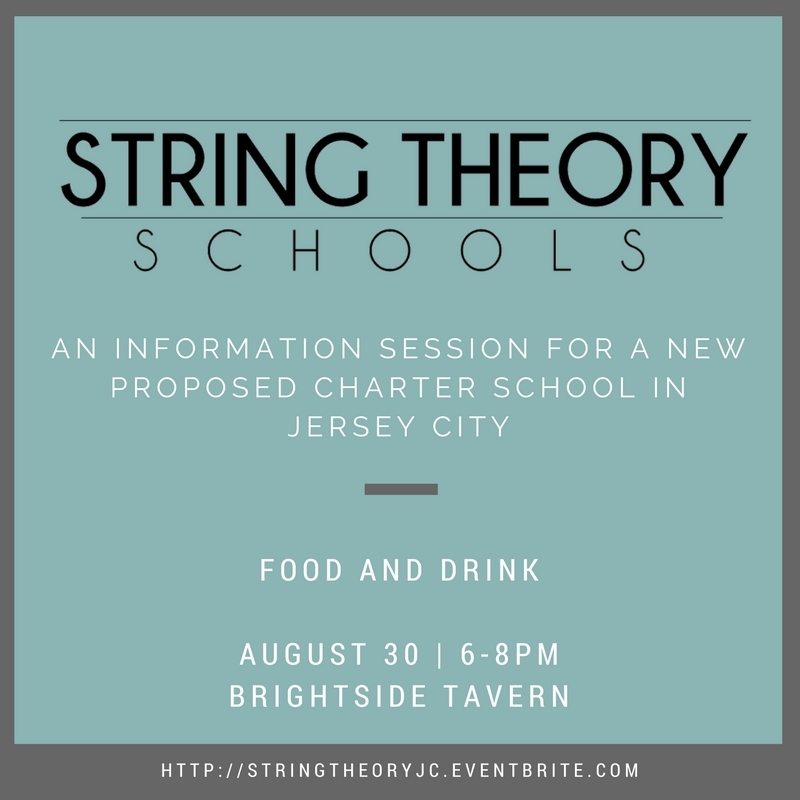
What’s your name?
I am Jason Corosanite.
What do you do?
I am the co-founder and CEO of String Theory Education.
What is String Theory?
String Theory Education is the expansion arm of String Theory Schools, which operates four schools in Philadelphia including Philadelphia Performing Arts Charter School, the largest charter school in Philadelphia authorized for over 2500 students K-12. The first school that we opened was in 2000 as one of the first elementary schools in Pennsylvania to link academic performance to the arts.
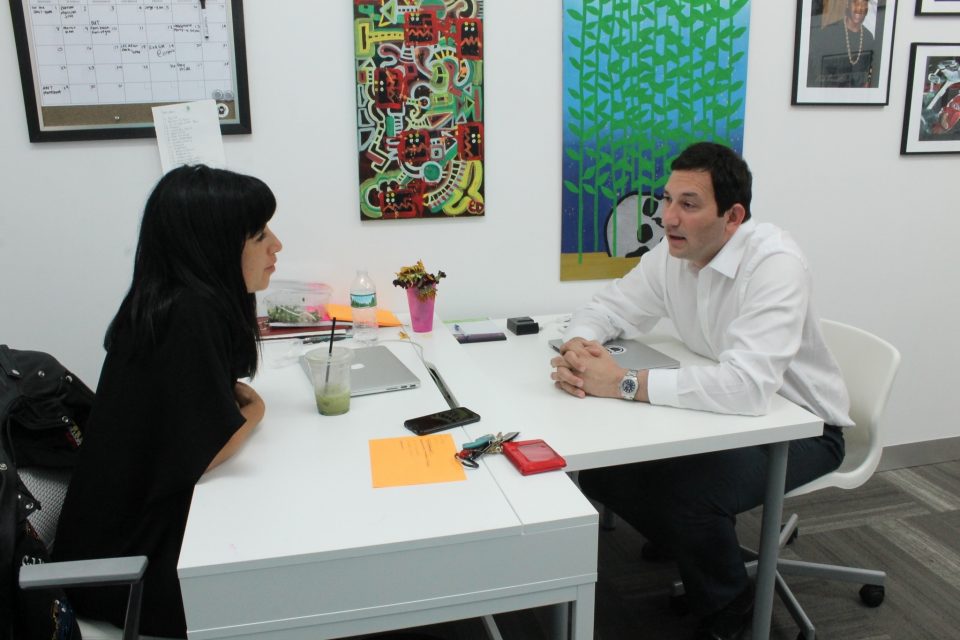
For the first 10 years, it grew to become one of the highest performing schools in Philadelphia and is unique for several reasons. Primarily, we have a 90-minute longer school day than that of our local school district. With those 90 minutes, students in Kindergarten through 5th grade get seven extra classes in the arts and sciences. There are three performing arts including Vocal Music, Instrumental Music, Classical Ballet, plus French as a Foreign Language, Creative Writing, Visual Arts, and Science and Technology.
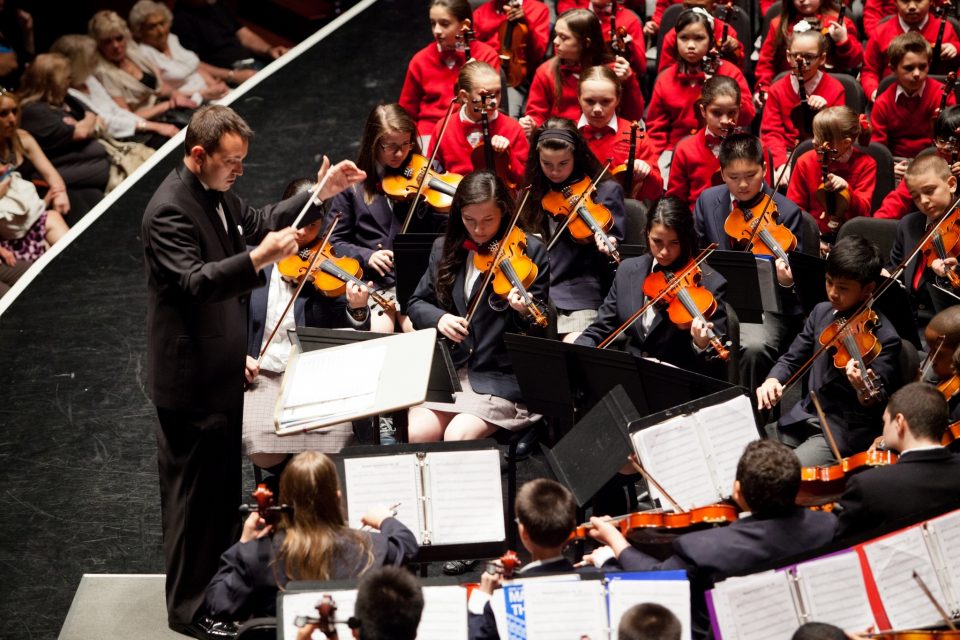
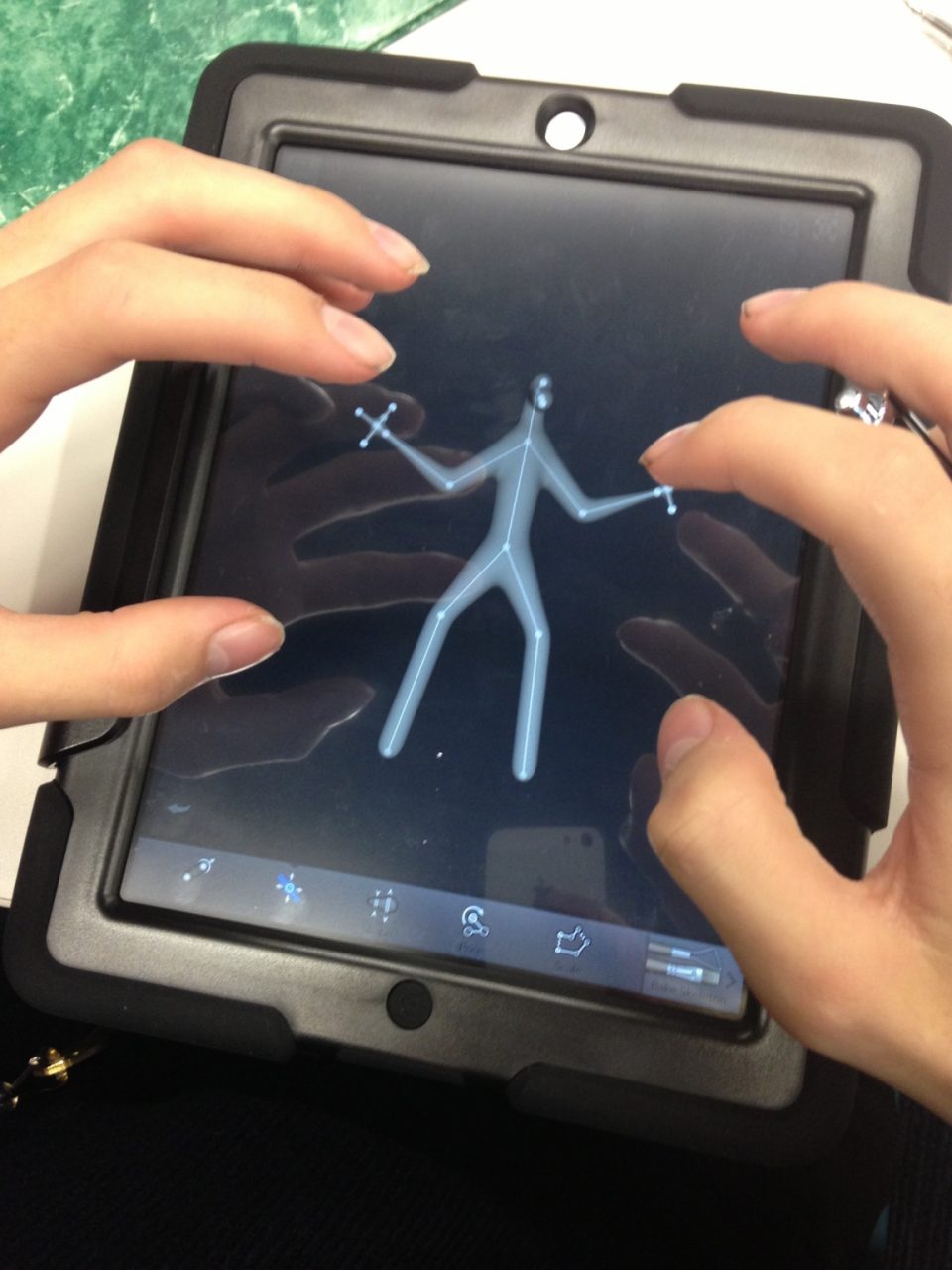
That sounds like a dream!
It’s really cool. Kindergarten students don’t know they’re not supposed to have 13 classes when they start school. They have their 5 academics and then 7 extra classes. For K-5, our school model includes a discovery process for kids to figure out what type of creative they are and what type of learner they are. In 5th grade, they choose one of those 7 subjects as a major and spend 90 minutes every day in the major. You can be an art major, music major, or any one of those. It’s fully STEM and fully Arts. In 2013, we had the opportunity to open up our flagship high school in Center City Philadelphia, and opened that as a more grown-up model of our K-8 schools.
Since then, we’ve been honored as one of the most innovative schools in the world. This past year, Apple came, and featured us on their home page. We are now looking to take that model, expand it, and grow it into other areas around the country. New Jersey, and specifically Jersey City, seems to be a very good fit for where our first expansion would be.
Why Jersey City?
Jersey City is a very vibrant city and culturally rich. You have the Science Center, culture institutions, and many young families. It seems to be a working-class city where you have a mix of people that are servicing the New York or Manhattan area, but it also has a very unique identity in and of itself. We see a lot of activity in the arts and it’s very diverse. We’re looking for several things: a community that would be a good fit for our school model, an area where young families are moving into, and an area as our first expansion out of Philadelphia that is within a manageable distance from us.
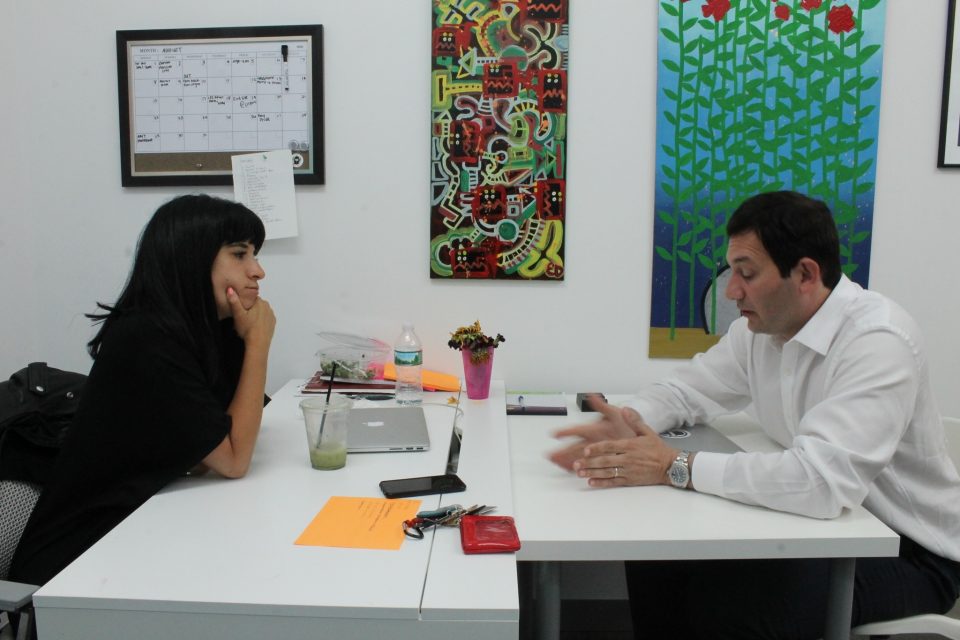
Jersey City itself is a place that is on the growth side as far as population, and it’s also a place that is comparable to Philadelphia in terms of what we are financially operating on per student. There are lots of places around the country where the tuition rate is much less. We’d like to be able to go into an area that culturally feels like it’d be a good fit, that business-wise is growing and expanding, and financially means we don’t have to cut anything out of our model because our model is much more like a private school education. If you were to see our existing high school, it looks and feels much more like a $40-50,000 private school than a charter school.

So how does a charter school work? It’s like a lottery system, right?
Yes, it’s strictly by lottery and there are no criteria. Students can apply where there are openings in the school. Our vision is to have a K-12 school here. It would open up with at least K-5, which would provide opportunities in each of those grades for students. Potentially, high school could work the first year, but it depends upon the facility, opportunities, and timing. It is tuition-free and not criteria-based. We are choosing to make it a local district school as opposed to a regional school, which means that if you live in Jersey City, you have first preference for application and acceptance.
How soon can people start applying?
We’ll be opening most likely Fall 2018. Applications will probably start in the summer or spring before the school year. However, what’s really important right now is for us to demonstrate community need and interest, and we are actively soliciting and looking for not only input from the community.
I think with the way Jersey City is advancing, all these people are coming in but the school system is not quite there yet. It’s a general complaint. For my daughter, I currently pay for private school and want to send her to public school, but I’m not sure what to do. I think String Theory would be a good fit.
Definitely. The story you tell is very typical, with young families who want to raise kids and be in the community, but it’s a community where schools aren’t caught up. Our school model is very modern, very contemporary. We know that kids interact with the world, consume content, and create content through mobile devices. We apply that to education and what we see is that when kids are engaged, they’re allowed to create and be creative problem solvers. One example of that is we still study the Renaissance and read Romeo and Juliet. But instead of writing a paper or taking a test, we’ll do something interesting like allow kids to recreate scenes in tweets with hashtags.
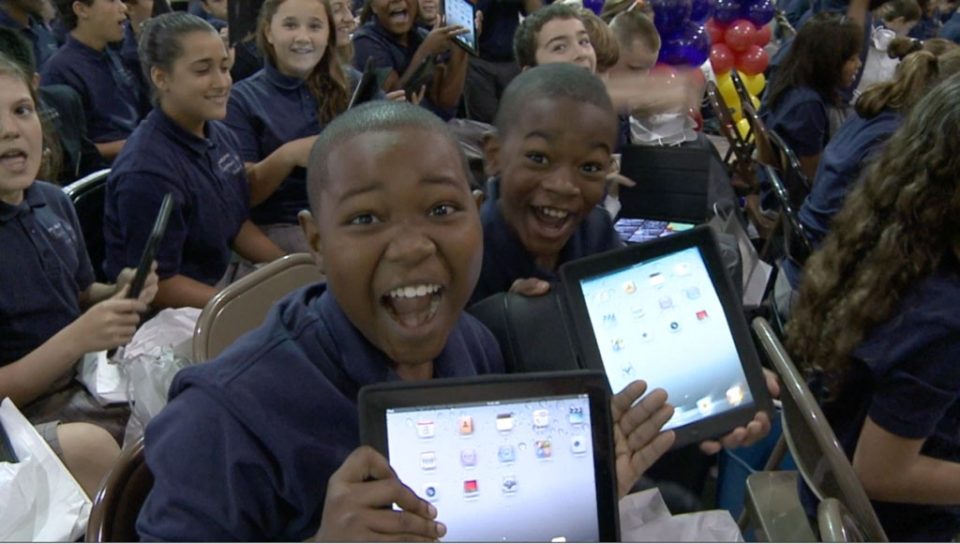
I love that! You’re evolving with the times.
We certainly are. Kids have to demonstrate content knowledge, but they can do that in multiple ways.
It’s fun and you’re making the content creative.
And this is whatever innate creativity and whatever type of art the child is interested in. Applying it to learning, we see that their time on task is through the roof, their engagement is through the roof, and they’re remembering this material so much better than writing it on paper. It begins in kindergarten. We also allow families who have kids with different abilities to have a K-12 pathway. It’s important for those families that move into areas looking for educational opportunities for their children so they don’t have to worry about getting into a good middle school, or if they’ll get accepted to a private or magnet high school. To be able to know that once you’re in a school, your kid can go from kindergarten to 12th
grade and your needs are being met. That’s what families need, especially to have some stability.
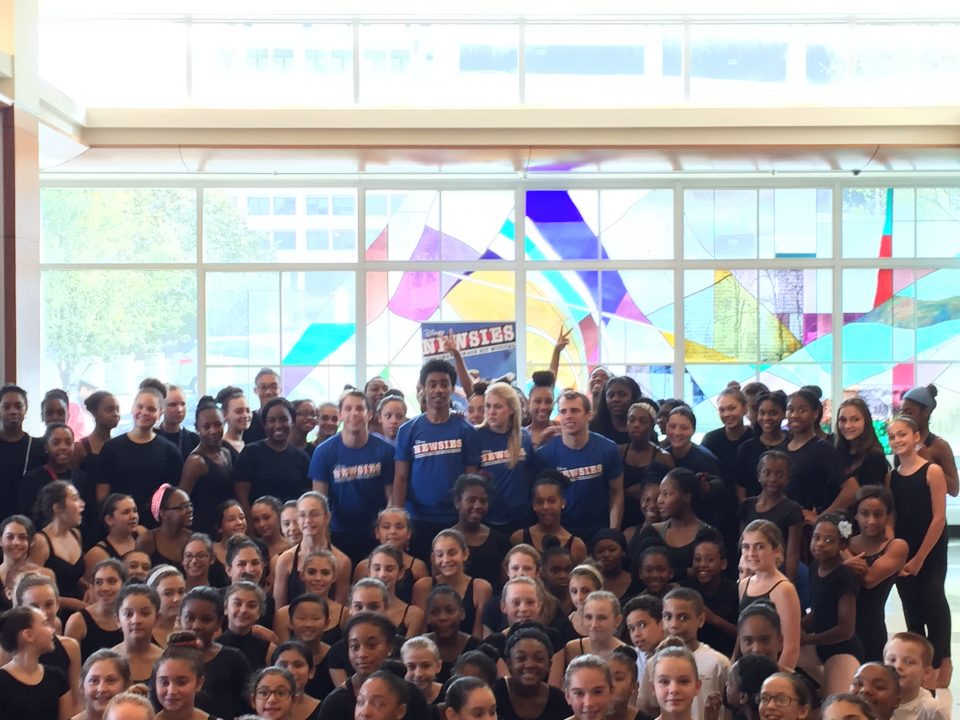
What I love about the school is the focus on STEM and the Arts.
What we noticed is that kids are kind of like seeds – you don’t know how they’re going to blossom. By 5th grade or 6th grade, we find that kids start to develop interests and abilities. Our school allows students to do what they’re interested in, even if they have two focuses. Students are allowed to explore other interests and be ready for college when it’s time.
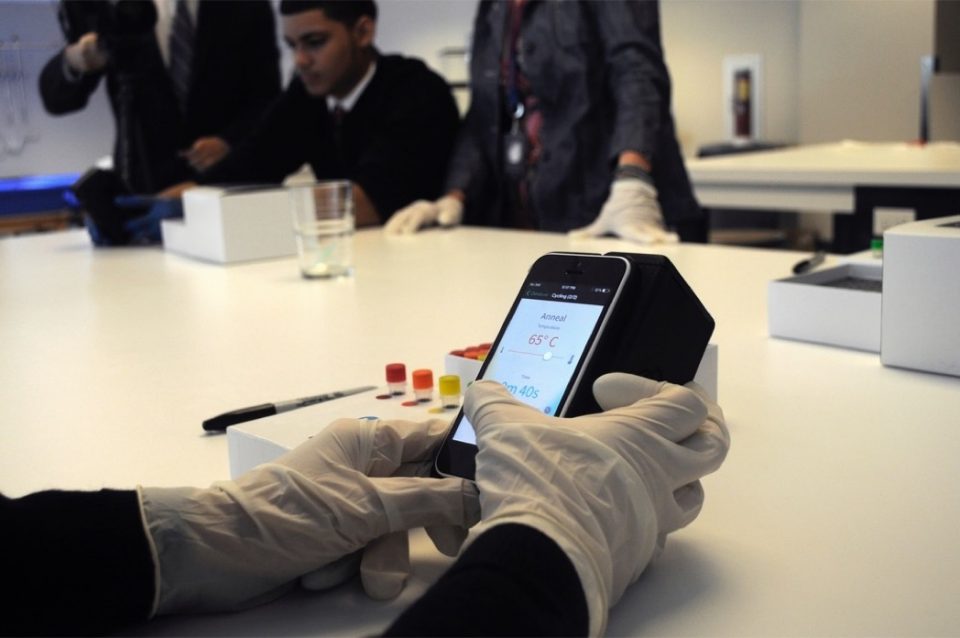
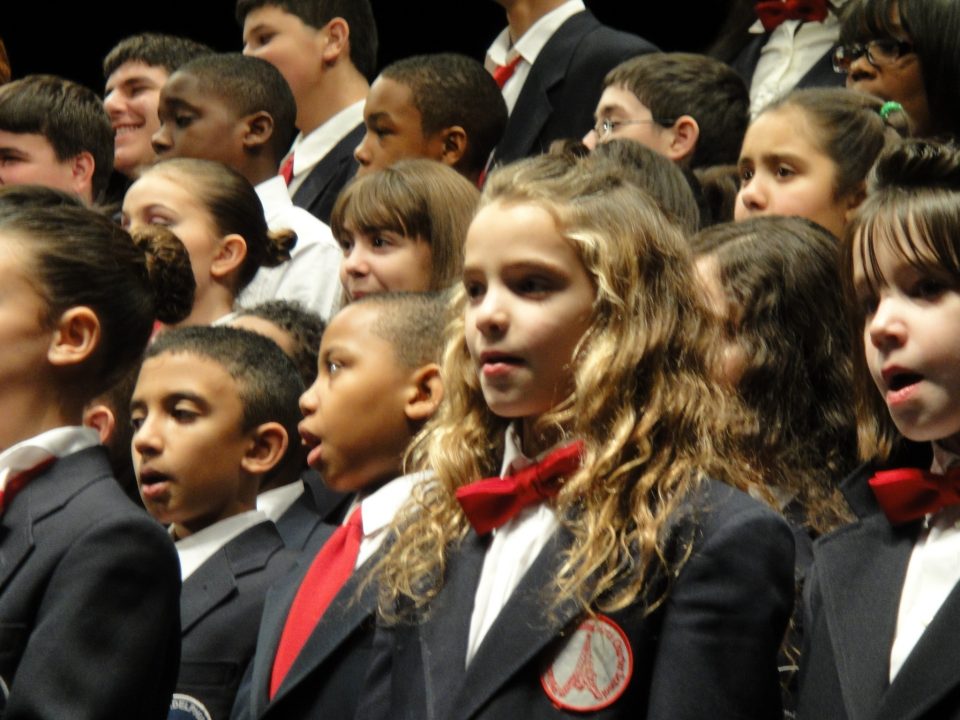
I love that. What is your background?
My background is not originally education. I went to the Philadelphia College of Pharmacy and Science. I was very much into the sciences, but the vision for the school really came from my parents, who started our first school in 2000. They had a non-profit ballet company for many years and noticed that kids who came through the program had different intelligences. However, students in Philadelphia didn’t have the opportunity to have all the arts in school, and that was a shame. In 1999, an opportunity came up to open a performing arts based charter school in Philadelphia. They were one of the few applicants awarded a charter and over the course of about ten years, it grew to become one of the highest performing schools in the city. I was living out of state at the time and finishing up my Educational Leadership degree in Charter School Leadership when an opportunity came up for us to expand. In 2011, my mother and I started String Theory Schools, an Education Management Organization. We wanted to take the vision of our first school and duplicate it around the city, and ultimately the country. Recently, we created String Theory Education. This is a separate non-profit designed to expand our model nationally. I am now the CEO of String Theory Education and Jersey City will be our first destination for expansion.
That’s exciting! We’re really excited to have you guys in the area.
We’re so excited. When we look at urban education and what it can be, we know that charter schools are working with a little less money than public schools but the flexibility is there to do an amazing job. We’re really excited about being able to do that. For us, it’s being able to create amazing experiences for kids, to blow their minds with learning and excitement.
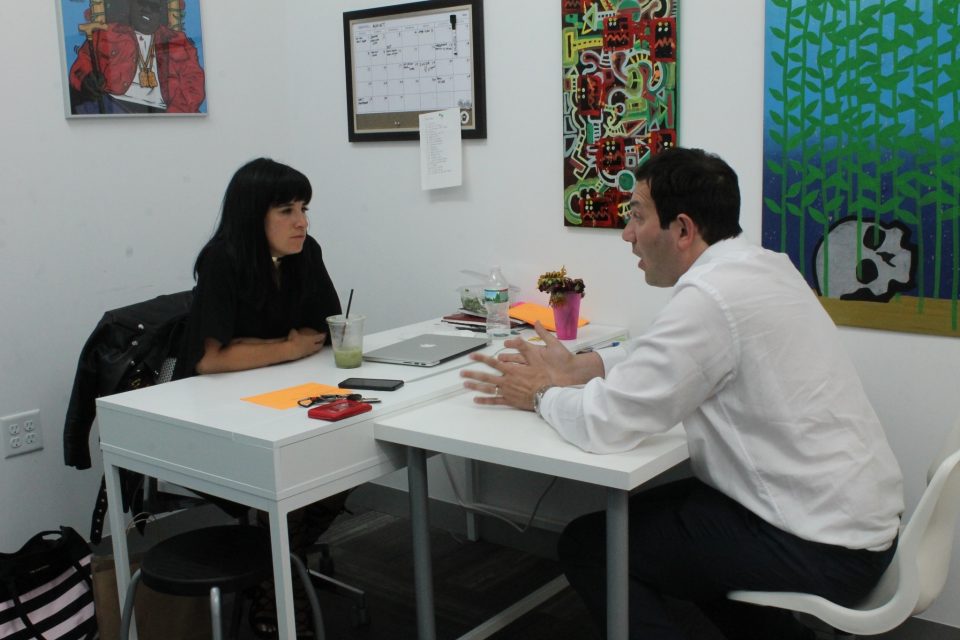
I want to go there! For charter schools, if it’s a lottery basis and no tuition, how do you guys make money?
In New Jersey, as we are in Pennsylvania, we have different options to gain permission to operate. For New Jersey, there’s a state application and we’ll be applying this October. The tuition for students is free because it’s subsidized through local, state and federal dollars. Because of that, we are considered to be a form of public education. That means we’re 100% funded through municipal dollars, but through that, we function like our own school district. We have the responsibility to find a building, hire all staff, and build the curriculum. There’s more flexibility and autonomy there. The school is operating as a non-profit, but gives people the freedom to implement something that serves the community and families in a way that best suits that particular area. It’s probably one of the most powerful vehicles for reform in education right now. We believe that our model and what we’ve demonstrated is that we can do a phenomenal job at serving as many people as possible.
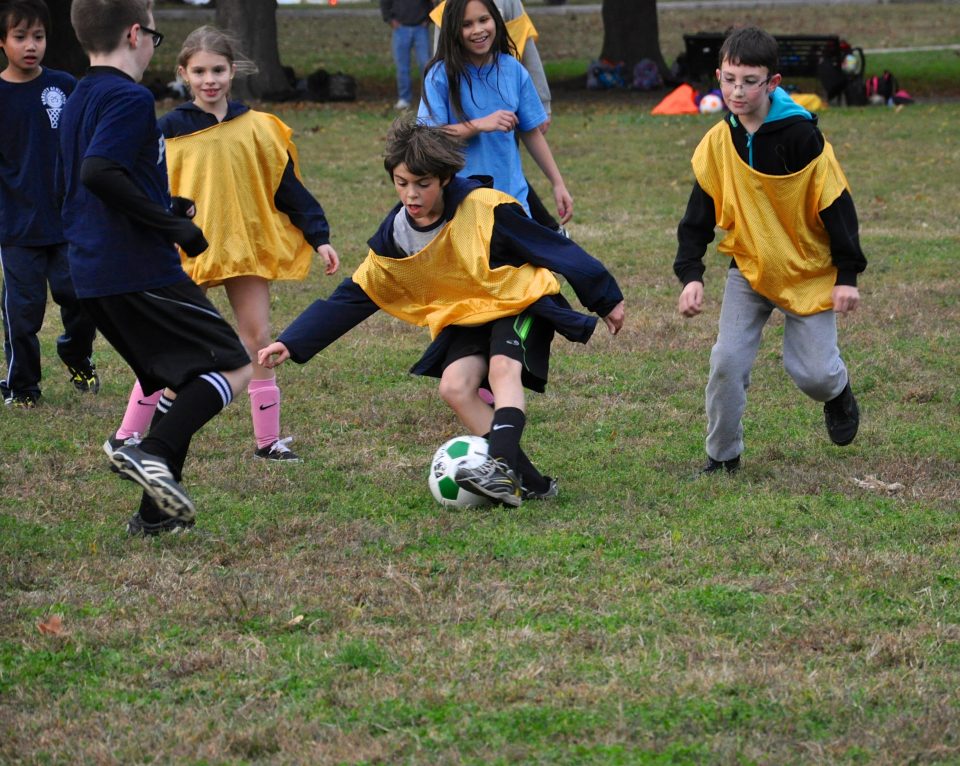
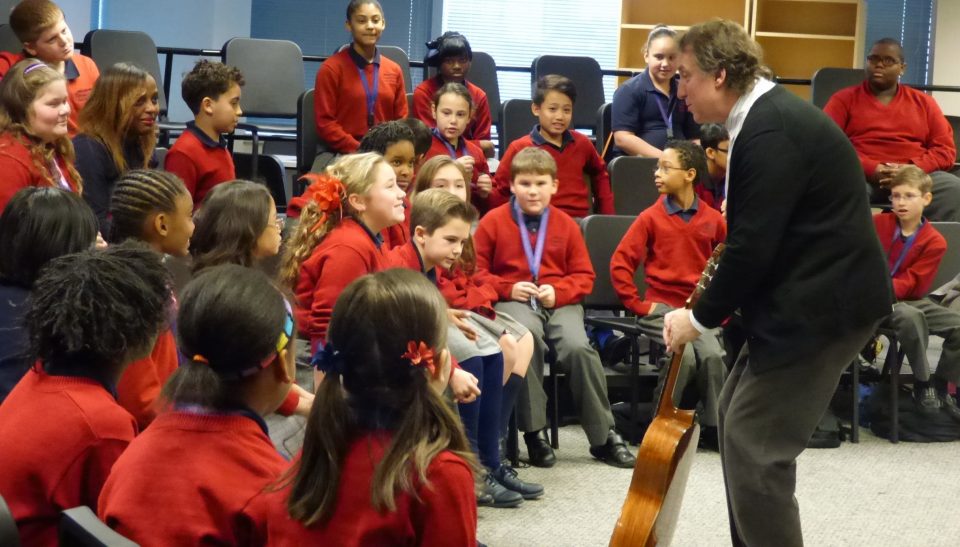
Are you going to move to Jersey City?
I personally will not move to Jersey City, but I presume I will be spending a great deal of time here. Our goal is to employ people from Jersey City because they know the needs and desires of this area. My role with the organization as CEO means that I’m casting the vision on the operational & expansion side. There’ll certainly be a lot of folks that will be based here.
So if people are looking for jobs, they could find you guys?
Certainly! In fact, our String Theory Website currently has a “Join Our Team” section to call for every level of employee that is needed for the schools, from school leaders and principals to teachers. We’ve started to collect applications and are looking for folks interested in being part of the team.
Anything else you’d like people to know?
Just that we’re super excited! We can’t wait to partner with the community to find out what the needs and desires are. We’re going to be doing several events between now and October, and it’s important for us to hear from the community. We’ll be looking for a building location and neighborhood for the school, and input or support to whatever extent. We certainly think volunteers would be helpful in our early stages. We’re looking at events over the next couple of months where we can engage with the community, whether that’s pre scheduled community events or events we can sponsor for informational meetings. We just encourage as much input from the community during this time.
Find more information on String Theory Schools on their website.
String Theory Schools will be coming to the Jersey City area on August 30th to host an information session. If you’re interested and want to know more about the schools, register now on stringtheoryjc.eventbrite.com!
My kids are currently in K and 3rd grade and we are very happy with our JC public school #3 and we are in the Dual Language (Spanish) program. However I am very concerned about middle and high school options for my kids in JC. It seems that the good public and charter school options are maxed out and super competitive to get into. It looks like this new school would be starting at K-5, but actually I think there would be huge demand at the middle school level. Actually, JCPS is not investing in continuing the Dual Language program into middle-school, so this is really a shame and could be a niche for String Theory to get into. In fact, many parents pull their kids out of the superb DL program to put their kids into the achieving charter schools they get into via lottery because they are afraid that they will have no middle and high school options for their kids when they head to 6th grade. Many of them would have preferred to have them stay in DL if they knew their kids would have a good school to go to for middle school. I see in Philadelphia you offer French, but here perhaps you would have a huge following of dual language parents who would like their kids leaving elementary school to enter a program in middle school. Just a thought. I’m not sure I can attend these info sessions, unless their is a high likely-hood you will be a offering middle-school option for 2020 and beyond.
i’m curious about their philosophy on homework and outdoor play. i think most JC charter schools focus too much on homework at too young of an age and do not have outdoor play spaces. i want my kids to get to be kids AND get a good education. i think that’s possible.